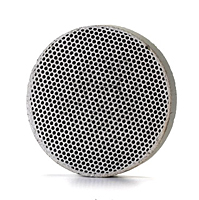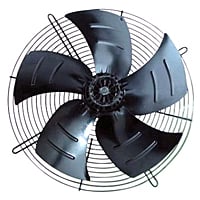When customers choose to undertake custom heating or cooling projects, they may not always make as many considerations as industry professionals.
There are a lot of questions that need to be addressed before any installation can begin, such as those pertaining to the location and characteristics of the desired system, and the cost and energy concerns of the entire project.
There are also many questions to consider when working on the systems once they are set in place; the slightest issue can increase the chances of component degradation or eventual failure. Depending on whether you are working on either a heating or cooling system, there are different questions that are vital to keep in mind.
 Heating Systems
Heating Systems
Q: Is maintenance the same for all kinds of heating systems?
A: Since heating systems differ slightly, maintenance on those systems will also differ.
For example: household heating applications rely on the thermal conduction of the building, whereas transportation heating applications utilize energy from the vehicle itself. Some applications rely on thermostats to regulate energy, and others are self-limiting.
In any case, you’ll want to consider the specific energy concerns and individual components of the application before making repairs.
Q: My heating system is creating unusually high utility costs—how can I resolve the issue?
A: Higher energy costs can be indicative of poor energy efficiency. The secondary limiting devices that some heating systems depend on can malfunction, leading to an influx of heat energy—which in turn leads to higher energy costs.
To combat this issue, you should regularly check your system for any signs of overheating and replace any defective parts.
Q: Do PTC heaters need constant maintenance?
A: A PTC heater has a much longer service life than a traditional resistance heater. PTC heating limits the amount of energy flowing through a system, making them less prone to overheating or shorting out. Like with any machinery, it is possible for PTC heaters to malfunction—if you notice any problems, check the heater for any faulty circuitry.
 Cooling Systems
Cooling Systems
Q: Is maintenance the same for fans and blowers?
A: Maintenance will be slightly different for fans and blowers since each has unique airflow and pressure characteristics, but generally you should watch for signs of fatigue on belts, bearings, sheaves, and other components. DC fans, DC blowers, micro fans and cross flow fans will each have some differences when it comes to maintenace.
Q: Why are there airflow problems in the system?
A: Your cooling (and heating) system can accumulate debris or other contaminants, which can lead to poor performance and damaged components over time.
Make sure to keep these components clean. Issues like fan degradation (caused corrosive gases or abrasive particles) can be averted with periodic inspection of the system for any flow irregularities.
Q: What is another component that needs to be checked regularly?
A: The condition of the fan’s motor is vital to the proper operation of the system. You can use methods such as vibration analysis—of the motor speed and blade pass frequency—to preemptively detect issues within the motor windings. You can also measure insulation resistance at certain voltages to test the motor windings.
More Questions? Contact Us Today
If you have additional questions about diverse, custom heating and cooling systems, Pelonis Technologies has several online resources that can provide you with a better understanding of options available to you.
If you need further assistance pertaining to heating and cooling, don’t hesitate to contact us.






